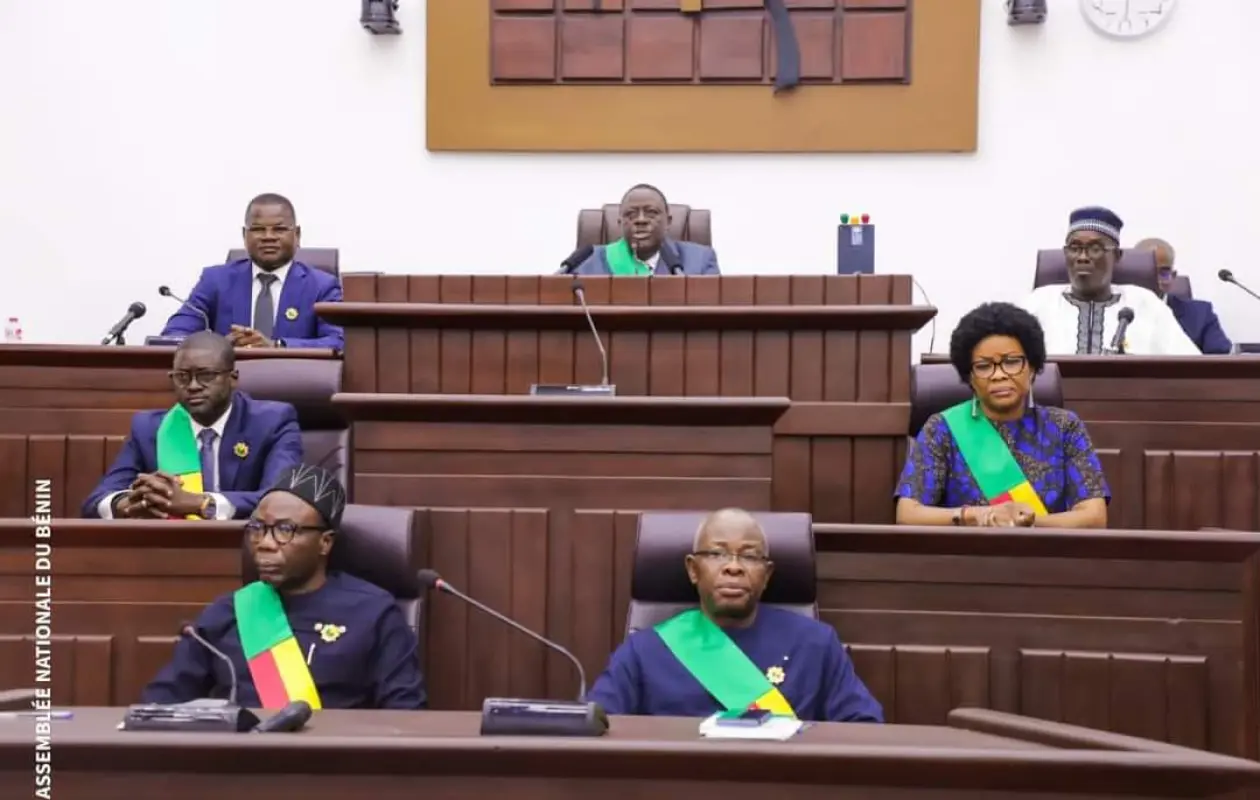
Bénin : Examen au Parlement d’une proposition de révision de la Constitution qui instaure un Sénat
In Benin, President Patrice Talon is nearing the end of his term. He has only seven months left to move out of the Marina Palace. Before stepping down, the parties that support him, namely the Progressive Union and the Republican Bloc, are working to revise the Constitution.
Last October, they introduced a proposal to Parliament to revise the fundamental law. This text, which will be examined by the deputies meeting in plenary session this Friday, November 14, establishes a Senate and a political truce in Benin.
A Senate composed of former presidents of the Republic, members of Parliament…
The Senate's purpose is to "bring together, or even arbitrate, divergent political options, in favor of effective and consensual public action." Its composition is not yet clearly defined, but according to the proposed law, "this new body will draw on the experience of former Presidents of the Republic, former Presidents of the National Assembly, former Presidents of the Constitutional Court, and the Chiefs of Staff of the forces responsible for national defense and security."
In other words, this Senate could include Nicéphore Soglo, Thomas Boni Yayi and Patrice Talon himself.
If this bill is passed, the outgoing president will not really leave the political game, especially if he is put in charge of this new institution which, it should be noted, has a role to play on the legislative level.
Indeed, the Senate "deliberates, a priori, on any bill or proposed law of a political nature, particularly concerning the devolution or organization of state power. It may also request a second reading of any law passed by the National Assembly, except for finance laws and similar legislation. When, at its request for a second reading of any law conferred by the Constitution, the National Assembly rejects the observations of the President of the Republic, the Senate is seized for a final reading."
Four-year political truce after the general elections
As for the political truce, its objective is to suspend the activity of competitive political debate. "During this period of truce in political competition activities, the activity of political parties must not compromise the political action of the President of the Republic and the Executive branch... Political activity must be contributory and contribute to the success of the political action implemented by the majority in charge of leading the State," states Article 5-1, paragraph 2 of the proposed law.
In short, after the general elections, parties must, for the following four years, refrain from engaging in political debate for competitive purposes. Instead, they must support the elected president. Electoral competition will only be permitted one year before the general elections.
It's truly uncertain whether this bill will pass. The Democrats, the main opposition party, even in its weakened state, still hold a blocking minority. Furthermore, dissenting votes could come from within the presidential majority.
We still remember the last proposed constitutional reform which failed because the opposition and some elected officials from the ruling party voted against it.
Commentaires (0)
Participer à la Discussion
Règles de la communauté :
💡 Astuce : Utilisez des emojis depuis votre téléphone ou le module emoji ci-dessous. Cliquez sur GIF pour ajouter un GIF animé. Collez un lien X/Twitter, TikTok ou Instagram pour l'afficher automatiquement.